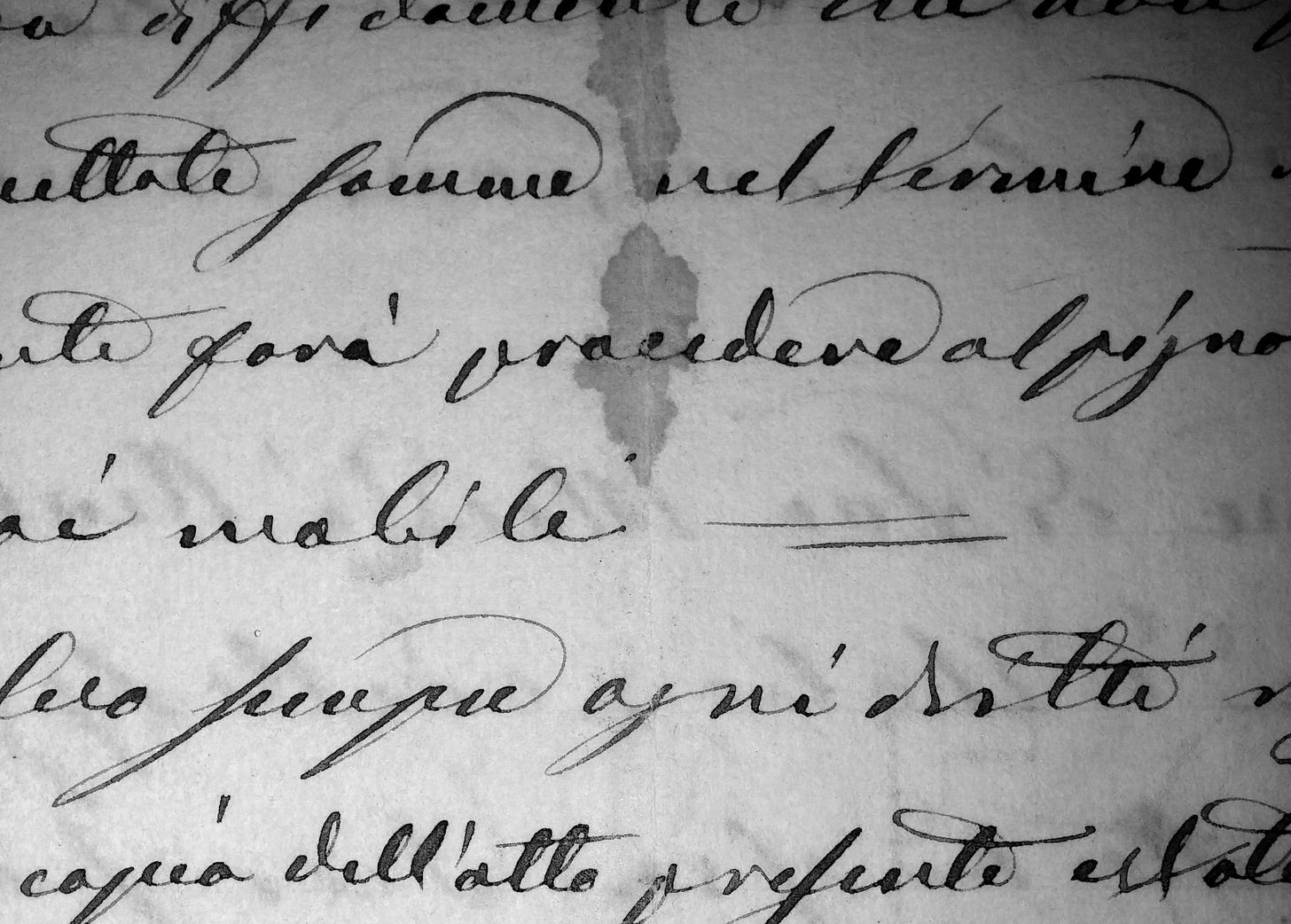For today's moon
Gerbli ob, the slow disappearance of handwriting, a dying earth tale, a snake's year
Apparently when I write out a shopping list for myself, my handwriting is so abstract that my better half struggles to read it. A few days ago, they’d picked up a shopping list I’d scribbled and offered to do the grocery run given I had an intensive work schedule that day—one of many reasons why they are my better half. (I know, I’m spoiled.)
Sometime in the late afternoon, I heard the front door shut, the same moment I realised I’d forgotten to rewrite the list so that they wouldn’t have to squint at my scrawl.
So, I frantically texted:
Me: Sorry! Didn't have a chance to rewrite it
Them: I had to decipher “gerbli ob” as “garlic oil”. Otherwise all good
Perhaps gerbli ob could be an alien ingredient that one dribbles across whatever passes for an intergalactic salad, or served stirred through small nodules extruded from fine flour—ground from a grass growing abundantly on some planet’s moon.
I should do this more often: use my own bad handwriting (and my tolerant better half’s inability to read it) to generate elements to embellish my world-building. The result might be even more random than anything an AI could give me.

In a recent an extract from her book The Extinction of Experience: Reclaiming Our Humanity in a Digital World, Christine Rosen examines what it could mean if we should lose our ability to write by hand—how it could impact our cognitive skills, and what it could mean at a sociocultural level:
Our choice of tools and the way we use them facilitate not only habits of hand but also habits of mind. Our embodied experiences shape not only how we learn to do mundane things, but also how we understand the world around us.
She takes us down a winding journey, dwelling on reasons we do things by hand and crave for handmade things, then leaves us with an ambiguous hope:
Yet the quiet disappearance of handwriting from our lives shows how the extinction of certain experiences happens: experiences recede gradually, not through some top-down edict or bottom-up populist campaign. And we rationalise their obsolescence not as a loss but as another mark of progress and improvement. A skill fades, and with it a human experience that spans millennia.
[…]
There is no reason to assume the triumph of the keyboard and touchscreen over pen and paper is inevitable, or that software spells the end of drawing by hand, or that the encroachment of technology in the classroom need force out more traditional embodied forms of learning. We can achieve some form of coexistence, even if it is likely to be an uneasy rather than a peaceful one.
Ironically, I’ve actually written more by hand in the past year than I’ve had in perhaps the whole of the previous decade, having managed to keep up my habit of writing morning pages for more than twelve consecutive months.
But when I compare the prose I’d written using a keyboard against prose I’d written by hand (then edited into a digital document afterward), I much prefer the results of the slower, more considered process. These days I’ve reached a kind of compromise; when drafting a short story, I always start sketching ideas and test the tone of a story longhand—until the words flow too fast and I have to open up the laptop to keep going.
Despite what my better half might think, my handwriting has actually improved. It may just not be so apparent for words like “gerbli ob”.
I’m unbelievably thrilled that my first short story acceptance of the year is for Our Dust Earth, an anthology that will accompany a mini table-top role playing game (TTPRG) by Todd Sanders, which won the Boardgame Geek 24-hour RPG contest in 2012. This volume is set in the far-future world, where three last human races—the Sophonts (genpure without the touch of machine), the Eidolon (autonomous, post-singularity machinekind), and the Biomeka (who are neither one nor the other)—eke out their daily lives upon a dying earth under a red sun, scavenging ruins for Pasttech and energy sources to sustain themselves.
With so many possibilities to explore in such a rich world, I spent weeks pondering what I might write. My (eventual) story, For Tomorrow’s Moon, is about love, language and the seeds of rebellion. Spoiler: my protagonist wrote by hand with a pen and ink—on paper. I’d like to think that even in the far future, despite how we might evolve our ways of communicating with one another, we would still take pleasure in reading and writing the ancient way.
Air and Nothingness Press produces beautiful books and only limited numbers of physical copies. They are also one of the kindest small presses I’ve had the fortune to work with. If all this appeals to you, please back the Kickstarter to get your copy!
Rabbit holes!
The user experience design of LEGO interface panels. How does one get a job designing these?!
This whole post might have begun because I came across this article on using the Spencerian method for improving handwriting some weeks (months?) ago. Somehow, I ended up backwards in time through copperplate scripts (not the font), then the English Round Hand, tracing handwriting styles all the way to rustic capitals. Calligraphy as an art form is still alive and well; there may be hope for me yet. Though, of course, the irony: none of the words in this post had been written by hand…
May the New Lunar Year of the Wood Snake bless you with creativity and positive transformation—and may no one misread your handwriting.







Congratulations on the publication! I tried to preorder but it doesn't yet list you as one of the authors in the anthology. Should I do it anyway?